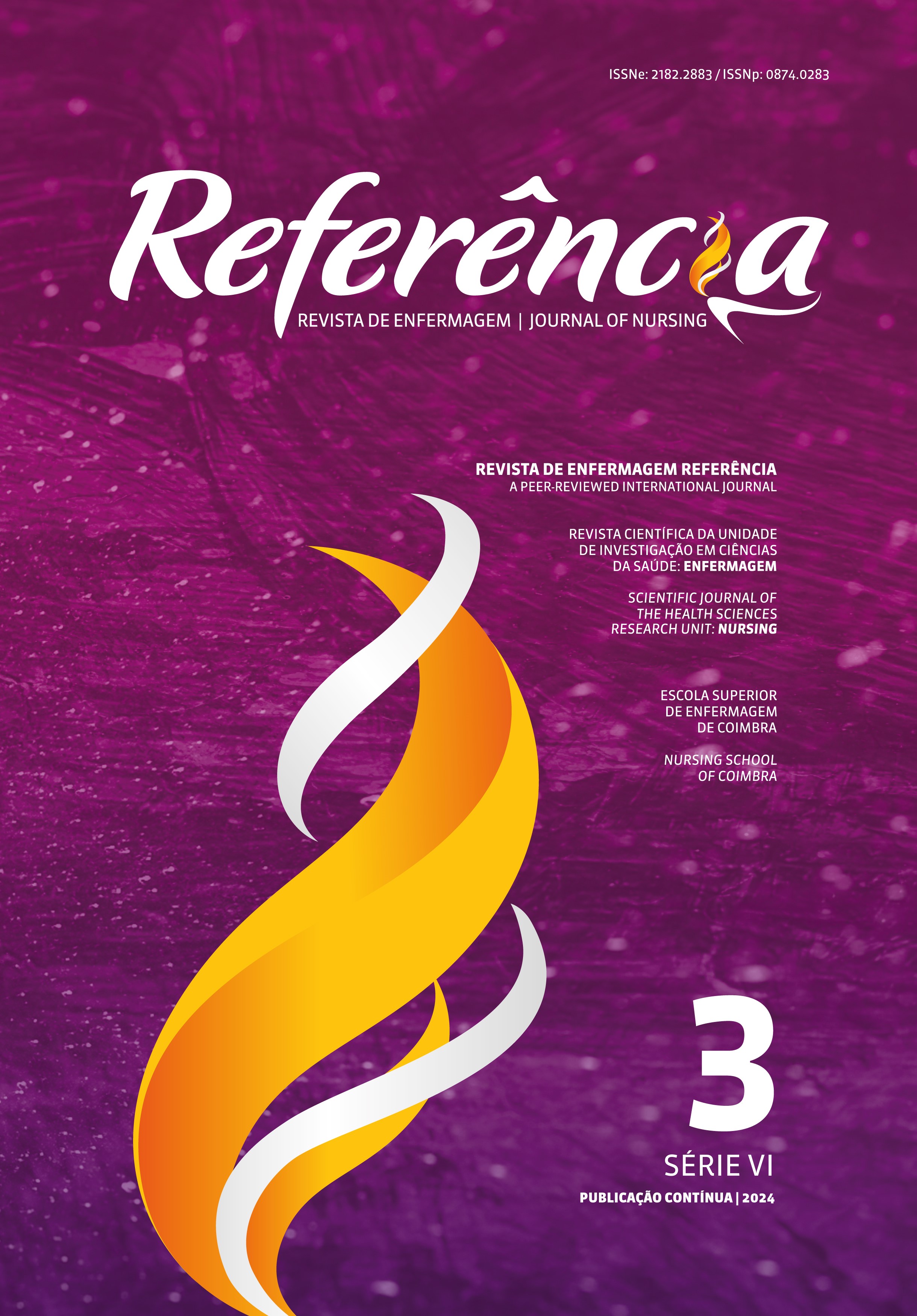Adaptation and validation of the Coping Behavior Inventory into European Portuguese
DOI:
https://doi.org/10.12707/RVI23.93.32445Keywords:
nursing, students, surveys and questionnaires, copingAbstract
Background: Nursing students are exposed to stress during their nursing program, particularly during clinical practice. Identifying the coping strategies used during this period can help identify resources to mitigate the stress they face.
Objective: To translate and validate the Coping Behavior Inventory (CBI) into European Portuguese.
Methodology: Methodological study with a nonprobability sample of 113 students attending the four years of the nursing program. To assess the psychometric properties of the instrument, its validity was analyzed using the principal component analysis method and its internal consistency by calculating Cronbach’s alpha coefficien
Results: Four common factors were extracted from the exploratory factor analysis, explaining 57.5% of the variance, with a Cronbach’s alpha value of 0.668 for the total scale.
Conclusion: The European Portuguese version of the CBI has adequate psychometric characteristics and is a reliable tool for assessing the coping strategies used by nursing students.
Downloads
References
Ahmad, M., Alzayyat, A., & Al-Gamal, E. (2018). Coping behavior inventory: Psychometric properties with Arab universities’ students. Journal of Nursing Measurement, 26(1), 1-11. http://dx.doi.org/10.1891/0000-000Y.26.1.1
Alanazi, M. R., Aldhafeeri, N. A., Salem, S. S., Jabari, T. M., & Mengah, R. K. (2023). Clinical environmental stressors and coping behaviors among undergraduate nursing students in Saudi Arabia: A cross-sectional study. International Journal of Nursing Sciences, 10(1), 97–103. https://doi.org/10.1016/j.ijnss.2022.12.007
Alkhawaldeh, A., Omari, O., Aldawi, S., Hashmi, I., Ann Ballad, C., Ibrahim, A., Sabei, S., Alsaraireh, A., Qadire, M., & ALBashtawy, M. (2023). Stress factors, stress levels, and coping mechanisms among university students. The Scientific World Journal, 2023, Article 2026971. https://doi.org/10.1155/2023/2026971
Anthoine, E., Moret, L., Regnault, A., Sébille, V., & Hardouin, J.-B. (2014). Sample size used to validate a scale: A review of publications on newly-developed patient reported outcomes measures. Health and Quality of Life Outcomes, 12(1), 2. https://doi.org/10.1186/s12955-014-0176-2
Beaton, D., Bombardier, C., Guillemin, F., & Ferraz, M. B. (1998). Recommendations for the cross-cultural adaptation of health status measures. http://www.dash.iwh.on.ca/assets/images/pdfs/xculture2002.pdf
Bhurtun, H. D., Turunen, H., Estola, M., & Saaranen, T. (2021). Changes in stress levels and coping strategies among Finnish nursing students. Nurse Education in Practice, 50(2021), 102958. https://doi.org/10.1016/j.nepr.2020.102958
Bujang, M. A., Omar, E. D., & Baharum, N. A. (2018). A review on sample size determination for Cronbach’s alpha test: A simple guide for researchers. Malaysian Journal of Medical Sciences, 25(6), 85-99. https://doi.org/10.21315/mjms2018.25.6.9
Cha, E.-S., Kim, K. H., & Erlen, J. A. (2007). Translation of scales in cross-cultural research: Issues and techniques. Journal of Advanced Nursing, 58(4), 386–395. https://doi.org/10.1111/j.1365-2648.2007.04242.x
Fitzgibbon, K., & Murphy, K. D. (2022). Coping strategies of health care professional students for stress incurred during their studies: A literature review. Journal of Mental Health, 32(2), 492–503. https://doi.org/10.1080/09638237.2021.2022616
Grove, S. K., & Gray, J. R. (2022). Understanding nursing research: Building an evidence-based practice (8th ed.). Elsevier.
Gutiérrez-Puertas, L., Márquez-Hernández, V. V., Aguilera-Manrique, G., Molina-Torres, G., Rodriguez-Arrastia, M., Román-López, P., Ropero-Padilla, C., & Rodríguez-García, M. C. (2022). Coping strategies and stressors of nursing students in the care of sex trafficking victims. International Journal of Mental Health Nursing, 31(1), 222–229. https://doi.org/10.1111/INM.12952
Kaiser, H. F., & Rice, J. (1974). Little Jiffy, Mark Iv. Educational and Psychological Measurement, 34(1), 111–117. https://doi.org/10.1177/001316447403400115
Kalikotay, B., Uprety, K., Rai, L., & Pathak, S. (2023). Anxiety and coping strategies of nursing students during COVID-19 pandemic in selected nursing campuses. International Journal of Nursing Education, 15(2), 41–47. https://doi.org/10.37506/ijone.v15i2.19251
Karaca, A., Yildirim, N., Ankarali, H., Açikgöz, F., & Akkus, D. (2015). Turkish adaptation of perceived stress scale, bio-psycho-social response, and coping behaviours of stress scales for nursingstudents. Journal of Psychiatric Nursing, 6(1), 15–25. https://doi.org/10.5505/phd.2015.40316
Lazarus, R., & Folk, S. (1984). Stress, appraisal, and coping | World-Cat.org. Springer Publisher.
Manosso, L. M., Gasparini, C. R., Réus, G. Z., & Pavlovic, Z. M. (2022). Definitions and concepts of stress. In Z. M. Pavlovic (Ed.), Glutamate and neuropsychiatric disorders: Current and emerging treatments (pp. 27–63). Springer. https://doi.org/10.1007/978-3-030-87480-3_2
Mazalová, L., Gurková, E., & Štureková, L. (2022). Nursing students’ perceived stress and clinical learning experience. Nurse Education in Practice, 64, 103457. https://doi.org/10.1016/J.NEPR.2022.103457
Pestana, M. H., & Gageiro, J. N. (2014). Análise de dados para ciências sociais (6th ed.). Edições Sílabo.
Sheu, S., Lin, H.-S., & Hwang, S.-L. (2002). Perceived stress and physio-psycho-social status of nursing students during their initial period of clinical practice: The effect of coping behaviors. International Journal of Nursing Studies, 39(2), 165–175. https://doi.org/10.1016/S0020-7489(01)00016-5






















